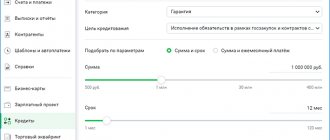Home / Bankruptcy / Bankruptcy of legal entities
Back
Published: 07/06/2019
Reading time: 7 min
6
545
In Art. 66-67 list the basic rights and obligations of a temporary manager appointed by the arbitration court for the duration of the monitoring procedure introduced for the purpose of analyzing the state of affairs in the debtor’s company and determining the primary volume of creditors’ claims.
- Rights of the temporary manager
- List of manager responsibilities
Also in paragraph 2 of Art. 67 provides a list of documents that the manager must submit to the arbitration court meeting based on the results of the observation. Standard forms and rules for drawing up documents based on the results of the work of a temporary manager are presented in industry regulations and executive decrees.
Peculiarities of appointing a temporary manager in the supervision procedure
A temporary manager is appointed by the court when the monitoring procedure is opened. The candidate is selected from among the arbitration managers, information about whom is sent by the self-regulatory organization.
Usually, when a bankruptcy application is accepted, a court request is sent to the SRO to nominate candidates for managers. If the application is submitted by the creditor, then he lists several arbitration managers to select a temporary manager from among them. If the application is submitted by the debtor, he indicates the name of the SRO to which the request should be sent.
The following requirements apply to the candidacy of a temporary manager:
- presence of higher education;
- availability of documents on passing the exam for the training program for arbitration managers;
- having work experience in a managerial position;
- no criminal record;
- no penalty in the form of disqualification.
The manager must also pay for insurance in case of damage to the debtor and creditors during the bankruptcy process. An insurance contract is attached as confirmation.
We must remember! A temporary manager is appointed for a period of three to five months and performs duties until the end of supervision. When the next bankruptcy procedure is opened, by decision of the meeting of creditors, he may be appointed to the position of temporary, administrative or bankruptcy trustee.
An example from judicial practice. The court considered the application of the Federal Tax Service of Russia for the bankruptcy of Avtogradstroy LLC. The court decided to open surveillance against the debtor. At the same time, the issue of appointing a temporary manager was resolved. In a statement, the Federal Tax Service of Russia indicated as the SRO that should nominate a candidate for an arbitration manager, the Association of Arbitration Managers “Siberian Center of Anti-Crisis Management Experts”. At the request of the court, information was sent about the arbitration manager Elvira Rinatovna Nadrshina, who complies with the requirements of bankruptcy legislation. The court appointed her as a temporary manager and approved remuneration in the amount of 30,000 rubles. at the expense of the debtor (Decision of the Arbitration Court of the Republic of Bashkortostan dated October 24, 2019 in case No. A07-14595/2018).
Responsibilities of the temporary manager
The duties of a temporary manager include all measures aimed at maintaining the financial activity of the debtor company. But in addition to this, the manager’s responsibilities include:
- find reasons for non-fulfillment of debt obligations;
- notify creditors of the commencement of the case;
- determine the liquidity of the enterprise;
- find all the creditors to whom the bankrupt borrower owes money;
- estimate the market price of the debtor company;
- predict the prospects and timing of the return of solvency (if possible);
- create and hold a meeting of creditors;
- draw up an action plan to return the company to solvency.
Also, temporary managers are required to find features of fictitious bankruptcy, if such signs exist:
- Finnish reports were edited or falsified;
- documents were destroyed;
- information about property was concealed;
- deb. debt was not controlled;
- drawing up deliberately unprofitable contracts;
- there is a financial opportunity, but debt obligations are ignored.
But this evidence is indirect and requires confirmation. The company's management should not interfere with the manager. Creditors must present their rights within a month after the opening of the case. And the debtor has a week to challenge everything.
What rights does a temporary manager have in the monitoring procedure?
According to Article 66 of the Bankruptcy Law, a temporary manager during the supervision process has the right to:
- challenge suspicious transactions of the debtor;
- file objections to the demands of creditors wishing to include the debtor in the register of creditors;
- participate in bankruptcy proceedings;
- submit an application to the court for the application of interim measures in order to ensure the safety of the debtor’s property;
- petition the court to remove the director of the bankrupt organization;
- request any information about the debtor from organizations and government bodies.
You should know! Organizations and various departments are required to respond to the request of the temporary manager within seven days. In case of failure to comply with his requirements, an application may be submitted to law enforcement agencies, which will bring the perpetrators to administrative responsibility.
Financial manager in bankruptcy of individuals
External manager
What responsibilities does a temporary trustee perform in bankruptcy?
During the monitoring process, the temporary manager performs the duties provided for in Article 67 of the Bankruptcy Law:
- ensures the safety of the property of the bankrupt organization;
- analyzes the financial condition of the debtor;
- creates a register of creditors' claims;
- notifies creditors of the opening of surveillance;
- organizes the first meeting of creditors included in the register of creditors of the debtor.
The purpose of the manager’s activity is to identify signs of financial insolvency. It also establishes whether there is a fictitious or deliberate bankruptcy, which is initiated by the debtor to illegally write off debts and preserve the organization’s property. If the company has prospects of paying off its debts, measures are developed to restore solvency.
Important! Simultaneously with the temporary manager, the debtor's manager continues to exercise his duties with certain restrictions. Thus, he does not have the right to enter into transactions with the organization’s property, carry out reorganization, or create branches and representative offices without the approval of the manager.
Are you tired of reading? We’ll tell you over the phone and answer your questions.
Who is an interim manager?
A temporary manager is an arbitration manager who is appointed by the Arbitration Court of St. Petersburg in order to carry out the bankruptcy procedure of a legal entity.
After accepting a bankruptcy petition for a legal entity, the court appoints a monitoring procedure.
What is surveillance and why is it needed?
The goals of this procedure are: to analyze the financial condition of the Debtor, determine the bankruptcy creditors, the size of their claims, the possibility of repaying the creditors’ claims, and take measures to preserve the Debtor’s property.
A temporary manager is appointed by the court in order to carry out the work and achieve the purposes stated above.
It is the financial analysis that makes it possible in the future to propose specific actions to restore the debtor’s solvency or transfer the proceedings from the monitoring procedure to the competition procedure.
What responsibility does a temporary manager have in the monitoring procedure?
For failure to fulfill his duties or their dishonest performance, the temporary manager may be removed from his position. The initiator has the right to be both the debtor and the creditors who file an application with the court. If the facts of illegal actions of the manager are confirmed, a decision on removal will be issued.
Various penalties are applied to unscrupulous managers:
- exclusion from SRO;
- compensation for losses caused to creditors and debtors during the bankruptcy process;
- administrative punishment in the form of a warning, fine or disqualification;
- criminal penalty.
The listed penalties can be applied simultaneously. For example, removal from office and disqualification, criminal prosecution and exclusion from the SRO.
We must remember! Only those actions of the temporary manager that encroach on the interests of the debtor and creditors, violate the rules of bankruptcy legislation, and lead to losses for the debtor and creditors are subject to appeal. If the manager believes that he has been held accountable without sufficient grounds, he has the right to file an appeal and cassation complaint to higher courts. After the unfounded judicial act is canceled, the manager is reinstated in his position.
Rights of the temporary manager
According to the provisions of Art. 66 of Law 127-FZ, the temporary manager has the right:
- demand from the court to recognize the debtor's transactions as invalid or to cancel the consequences of the debtor's insignificant transactions;
- dispute creditors' claims against the debtor;
- attend meetings where the debtor’s objections to creditors’ claims are considered;
- petition the court to introduce additional methods of protecting the debtor’s property;
- demand removal from the position of director of the debtor's company;
- request any documents and information about the activities of the bankrupt company.
The manager submits an application to the court to invalidate any transactions made by the management of the debtor's enterprise during supervision, if as a result of such transactions the assets of the enterprise were reduced by more than 5%. In addition, the manager has the right to challenge other transactions carried out by the debtor’s management if such transactions may infringe on the rights of creditors or impede the restoration of the debtor’s company’s solvency.
If the manager considers that the creditors' claims against the debtor are unfounded, he has the right to challenge them, as well as the debtor's objections to the creditors' claims.
As additional protective measures, the manager has the right to apply, with the approval of the arbitration court, a ban on the head of the debtor’s company performing any legally significant actions if he considers that such actions are attempts to cash out assets in order to avoid loan payments.
According to paragraph 2 of Art. 66, any information that the temporary manager may need, the management of the company is obliged to provide him with within 7 days. Also, the temporary manager has the right to request data on the financial transactions and civil transactions of the debtor from government authorities and regulatory structures, and the information is provided to the manager free of charge. The manager has the right to receive, among other things, information about the bankrupt company, which constitutes a tax secret for third parties (Letter of the Ministry of Economic Development No. 19062).
What should a temporary manager do during the monitoring procedure?
After vesting the temporary manager with authority, he begins to develop and implement the activities that must be carried out during the supervision process.
The following activities may be included in the action plan:
- Analysis of accounting documentation. Accounting statements are taken and indicators are calculated to identify signs of financial insolvency. Signs of deliberate and fictitious bankruptcy are also established.
- Analysis of the debtor's transactions. The manager examines the organization’s transactions to transfer property to third parties, made by it in the last three years before filing a bankruptcy petition with the court. When suspicious transactions are identified, a conclusion is made.
- Preliminary inventory of the debtor's assets. Property is identified through which the solvency of the organization can be restored.
- Compiling a list of debtors. Counterparties from whom the debt can be collected are identified. The proceeds can be used to pay off debt.
- Formation of a register of creditors' claims. The manager examines each application for inclusion in the register of creditors' claims of the debtor and checks whether there are documents confirming the existence of the debt. If there are objections, they are presented to the court.
- Organization of the first meeting of creditors. Notification of the meeting and agenda is sent to creditors. It is carried out 10 days before the end of observation in order to determine the next bankruptcy procedure.
What are the responsibilities of an interim manager?
- Filing, on one’s own behalf, claims to the court for recognition of transactions as invalid if the conditions provided for by the legislation of the Russian Federation exist.
- Statement of objections to the claims made against the Debtor by Creditors during the bankruptcy procedure.
- Participation in court hearings.
- Taking measures to preserve the Debtor's property.
- Conducting a detailed analysis of the Debtor's financial condition.
- Maintaining a register of creditors' claims, transferring the Debtor's documents for storage in accordance with the legislation of the Russian Federation.
- Notifications to creditors about the introduction of a monitoring procedure in relation to the Debtor.
- Convening and holding the first meeting of creditors.
Attention! It is impossible to carry out a bankruptcy procedure without a temporary manager!
At the same time, it is important that you understand all the actions of the temporary manager, as well as their consequences. That is why do not delay in choosing a specialist with whom you will work, do not give the opportunity to your opponents to make a choice for you!
Interim manager's remuneration
The temporary manager receives remuneration for the work done. The amount of the fixed payment is approved by the court and is 30,000 rubles. per month. It can be increased at the expense of creditors if they submit a corresponding application to the court.
Additionally, the manager may be paid interest on the book value of the debtor's assets. Depending on the value of the assets, interest payments range from 10,000 to 60,000 rubles.
Often, during the monitoring process, the temporary manager has to spend his own money on publishing announcements in the EFRSB, postage costs, and protecting the debtor’s property. These funds are reimbursed from the debtor's property.
Important! Expenses for the monitoring procedure must be financially justified and supported by payment documents. For convenience, the temporary manager prepares advance reports with checks and receipts attached.
Reward
Based on the results of the observation stage, the temporary manager has the right to receive remuneration, which consists of the amount of a fixed salary and accrued interest. In this case, the payment of both a fixed salary and accrued interest refers to the priority payments of the insolvent enterprise. In addition, the insolvency practitioner may demand reimbursement of expenses that he incurred during the implementation of his activities.
The amount of the fixed salary is regulated by Federal Law No. 127 and is thirty thousand rubles for the current year. per month. The arbitration court has the right to increase the fixed part of the arbitration manager's salary, based on the petition of creditors or other participants in the bankruptcy procedure. This court decision can be appealed. If the supervisor is removed, payments will be terminated.
Features of drawing up a temporary manager’s report based on the results of observation
Based on the results of its activities, the temporary manager draws up a report, which is provided to creditors, the debtor and the court.
The report reflects the required information:
- results of financial analysis;
- measures taken to preserve the debtor's property;
- amount of debt to creditors;
- amount of accounts receivable;
- sent requests and responses to them;
- recommendations on the next stage of bankruptcy.
The report is accompanied by a conclusion on deliberate or fictitious bankruptcy, a conclusion on questionable transactions, requests and responses to them, and other documents drawn up during the monitoring process.
We must remember! Information on the results of monitoring is published on the EFRSB portal. If the manager does not post this information, he may be subject to administrative liability in the form of a fine of 25,000 rubles.








